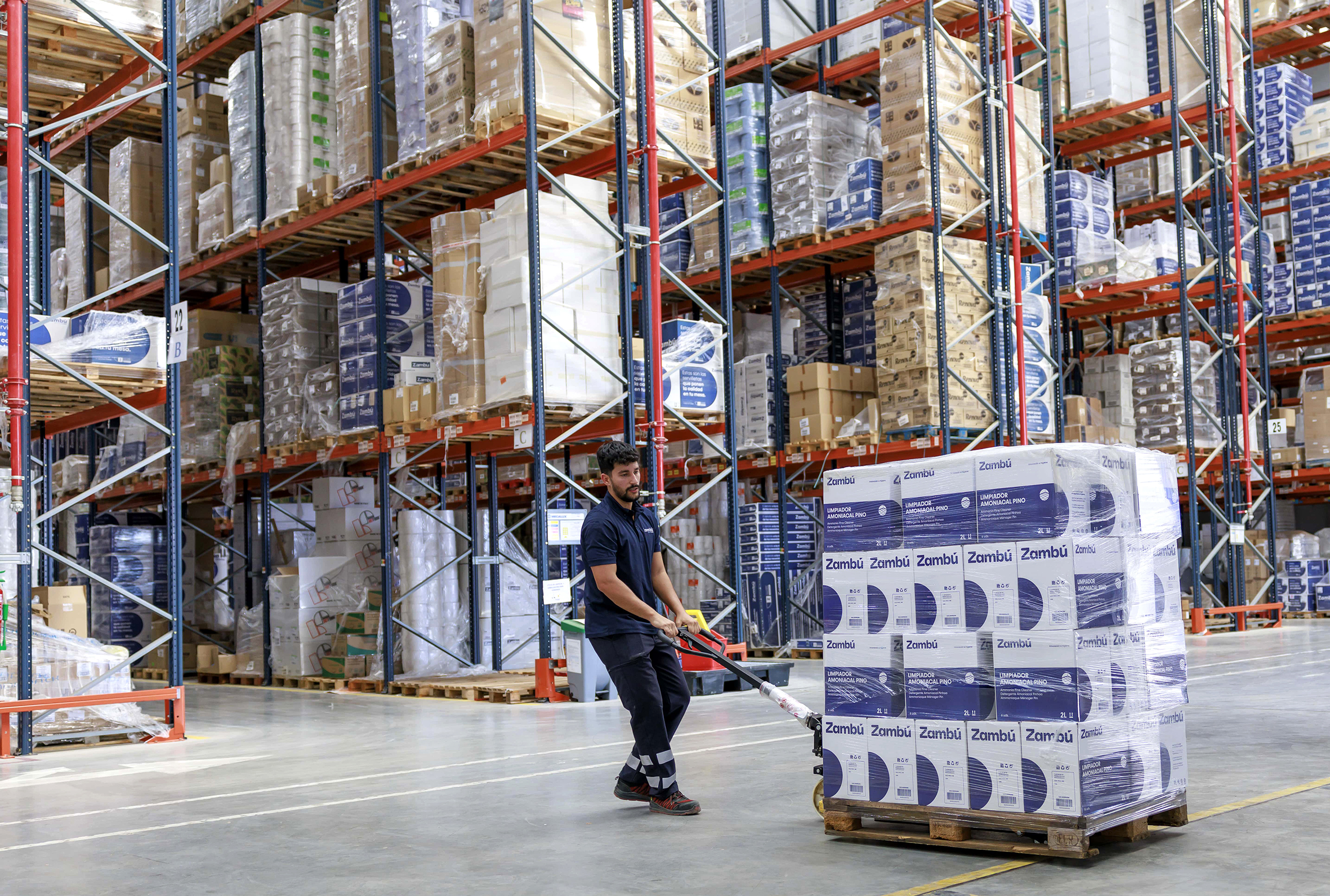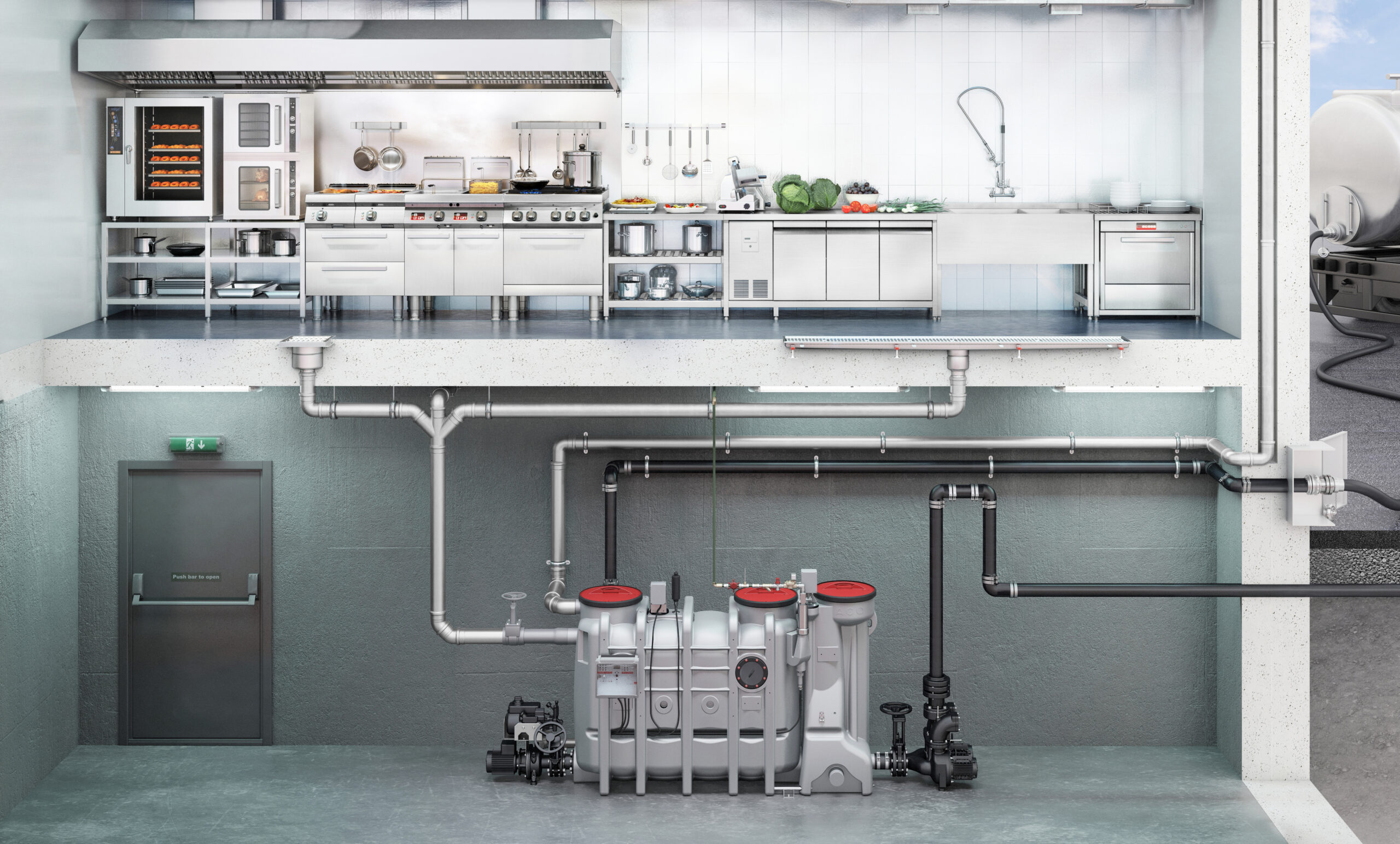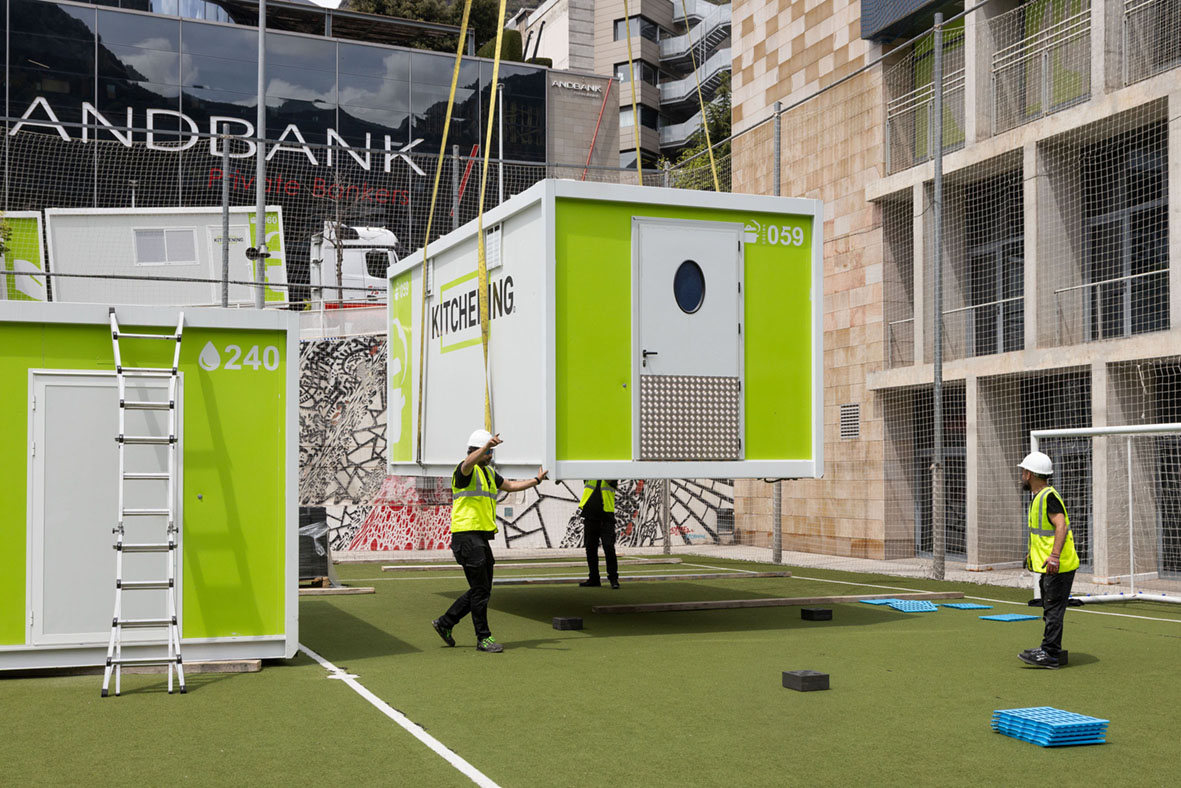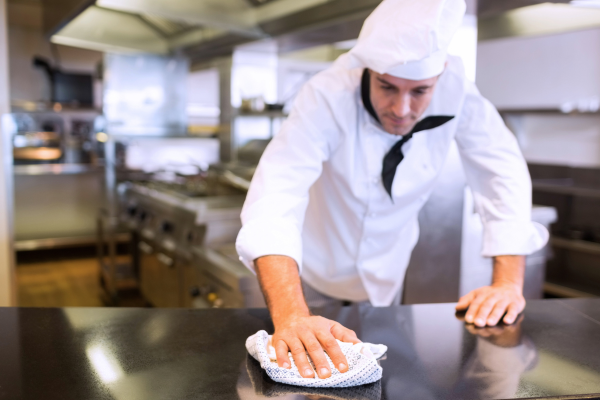Food hygiene and safety have and always will be a cornerstone of all cooking processes. For years, food safety in collective catering was synonymous with compliance: records, HACCP, inspections and manuals. Today, the sector has taken a step further. Safety and hygiene are no longer understood only as an obligation, but as a shared culture that permeates all stages of the process, from kitchen design to team training to the choice of products and suppliers.
Professional hygiene: the foundation of trust
To avoid problems related to food safety, it is vital that the staff responsible for food handling understand what lies behind the rules and those controls that must be carried out, but also that hygiene also starts in the environment. In mass catering kitchens, where hundreds of meals are prepared every day, safe and effective cleaning and disinfection products are essential to prevent contamination and ensure users’ trust; it is a segment where a single oversight can have serious consequences for many people, as here particularly vulnerable groups are fed, such as patients, the elderly, and children, many of whom have allergies.
Companies such as Zambú work precisely in this direction, developing professional hygiene solutions tailored to the needs of mass catering, combining efficiency, safety and sustainability. Its team of hygiene advisors supports their clients to offer them the most appropriate solutions for the needs of each group and each institution. This technical, personalised consulting helps to optimise the use of products and improve efficiency in professional environments.
As Raúl Fernández, CEO of Zambú says, “the main aim of food safety is to protect the health of consumers from food-borne diseases. To this end, we work on a daily basis to adjust to the needs of the sector through innovation and adaptation, offering a comprehensive, flexible service. We don’t just sell products, we get involved in the client’s business, providing both commercial and technical advice.”

Security by design: when infrastructure also protects
Foodservice professionals know that food safety is not just about the product and handling: it starts with the design of the space. A poorly drained floor or poor traffic flow can be sources of contamination, accidents or unpleasant environments.
For this reason, companies such as ACO, specialists in hygienic drainage and water management, argue that food safety should start with the very first site plan. Its solutions for industrial kitchens, communities and catering make it possible to maintain clean, safe and easy-to-sanitise areas, reducing risks and improving the efficiency of operations. As Enric Martin, Segment Leader at ACO, affirms, “the first step to achieving a healthy professional kitchen is to have an efficient wastewater management system; and for its design and implementation, aspects that facilitate cleaning and maintenance and optimise productivity must be factored in. A well-designed kitchen with an efficient system for draining and treating wastewater benefits not only workers and customers, but also the environment”

The same applies when it comes to provisional or emergency kitchens, set up to deal with an increase in temporary production capacity or the rapid replacement of a fixed installation that needs to undergo a full refurbishment. In such cases, companies such as Kitchening, a firm specialising in the assembly of temporary modular kitchens, work to ensure that each project is carried out in accordance with strict food safety criteria. From the isolation of areas to the planning of workflows or the choice of materials, temporary facilities, just like a conventional kitchen, have to ensure a comprehensive approach that prioritises food safety.
Andreu Llabrés, CEO of Kitchening, stresses how important it is that “the portable modules the company works with are designed in accordance with current regulations in terms of safety, occupational risk prevention and hygiene. This way, we can offer the same level of performance, capacity and food safety as a professional kitchen, which is essential to guarantee food safety and safeguard the health of diners in mass catering kitchens.”

Food security is also about inclusion
Another key aspect of the culture of food safety in a segment with as many daily diners as the mass catering sector is the protection of people with food allergies and intolerances. We must not forget that a failure in food safety in a kitchen may cost an allergic person their life (anaphylactic shock). Safety today also means talking about empathy, prevention and real commitment.
In this regard, it is worth highlighting the work carried out by associations such as ATX Elkartea, sponsor of the ATX Allergy Protection certification, which endorses those mass catering companies that, after receiving specialised training and passing rigorous audits, offer a food proposal that is adapted and safe for people with multiple allergies. The seal not only guarantees allergen-free menus, but also creates an inclusive culture in kitchens and equipment, promoting environments where safety is experienced as a shared value and not just a regulatory requirement.
This work is complemented by awareness-raising and recognition initiatives such as the ATX Awards whose second edition will be held in the ‘Mass catering: meeting point’ area at Alimentaria & Hostelco, recognising the work of professionals and organisations that promote safety and awareness of allergic users. As the founder and president of the ATX Elkartea association, Xabier Munioitz, comments, ‘beyond the award, the ATX awards are a call for commitment and responsibility from everyone involved. They recognise not only projects, but people who work with honesty, transparency and heart, so that others can eat without fear’.

A shared future
Ultimately, food safety depends not on a single action, but on the sum of many small, consistent decisions: good handling practices, rigorous cleaning, hygienic design, responsible allergen management, team training and constant innovation.
Safety culture is the overarching principle that promotes food safety by increasing the awareness and involvement of all staff in a company, including management, in food safety practices; a culture that is built collectively and which will also be discussed in the “Mass catering: meeting point” area at Alimentaria & Hostelco. The only global event of the mass catering sector in Spain, with stands and activities as part of the programme of the seventh edition of the ‘Mass Catering Congress’ where you will also find all the companies mentioned in this article. A space for sharing knowledge, experiences and commitment to safety, for those who place their trust in mass catering every day.
By Ana Turón, journalist at Restauración Colectiva



